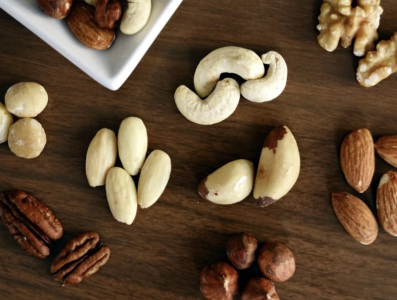12 superfoods to help you feel stronger, sharper, and healthier after 50
By
Veronica E.
- Replies 0
Disclaimer: The information provided in this article is for educational purposes only and is not intended as a substitute for professional medical advice, diagnosis, or treatment. Always consult your physician or other qualified healthcare providers with any questions you may have regarding a medical condition or before making any changes to your health regimen.
If you've ever wondered whether there's a secret ingredient for feeling energized, focused, and resilient as you age, you're not alone.
Many older adults are rethinking their diets and looking for ways to support their health through better nutrition.
The good news? Science continues to point toward certain nutrient-dense foods—commonly known as “superfoods”—that may offer impressive benefits for the brain, heart, bones, and more.
And the even better news?
Most of these foods are easy to find, delicious, and simple to incorporate into your daily meals.
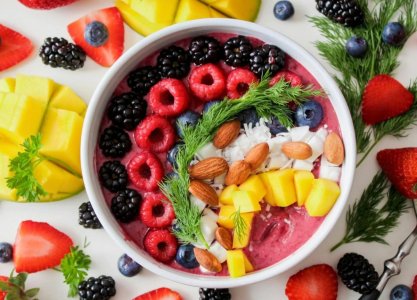
Superfoods aren’t magic, but they are powerful.
They’re foods that are naturally rich in essential nutrients—vitamins, minerals, fiber, antioxidants, and healthy fats—that help protect your body from disease and support graceful aging.
Whether you're hoping to boost your memory, reduce inflammation, or improve heart health, the right food choices can make a big difference.
Here are 12 of the best superfoods for adults over 50—and easy ways to enjoy them every day.
Whether you prefer blueberries, strawberries, or raspberries, these small fruits pack a big nutritional punch.
They’re loaded with vitamin C and flavonoids that may help protect brain health and fight inflammation.
Studies have linked regular berry consumption to improved memory and slower cognitive aging. Try them fresh, frozen, or blended into a smoothie.
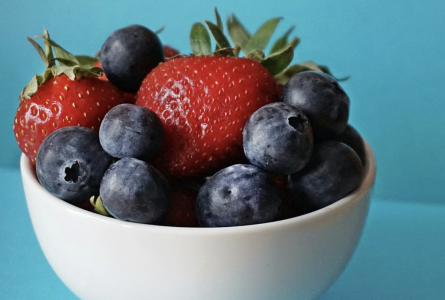
Spinach, kale, and Swiss chard are top choices when it comes to greens.
These veggies are packed with vitamins A, C, K, and folate—nutrients that support vision, heart health, and strong bones.
They’re also a good source of calcium and fiber. Add them to soups, salads, or sauté them with a little olive oil and garlic.
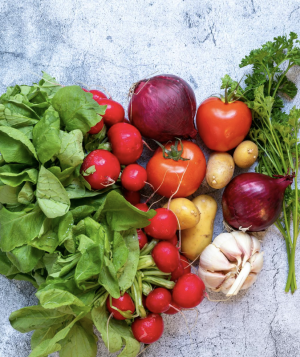
Salmon, sardines, and mackerel are all rich in omega-3 fatty acids, which support brain function, reduce inflammation, and help protect against heart disease.
Experts recommend two servings per week. Try them grilled, baked, or mixed into a fish stew.

Almonds, walnuts, flaxseeds, and chia seeds provide healthy fats, plant-based protein, and key minerals like magnesium.
Walnuts are especially good for brain health, and flaxseeds offer a plant-based source of omega-3s.
Enjoy a small handful as a snack, or sprinkle them onto yogurt, salads, or oatmeal.
Beans are affordable, high in protein and fiber, and excellent for heart health.
They also help regulate blood sugar and support digestive health.
Lentils, black beans, chickpeas, and kidney beans are all smart choices.
Toss them into soups or use them as a base for hearty salads.
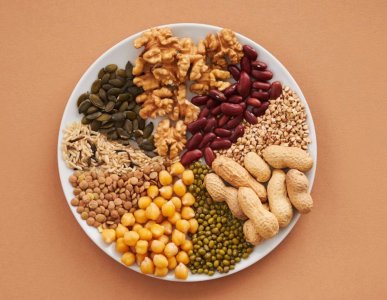
Switching to whole grains like oats, quinoa, barley, and brown rice can help regulate digestion, lower cholesterol, and keep your energy steady.
These grains are rich in fiber and B vitamins, making them great for overall wellness.
Choose whole grain versions of bread, pasta, or breakfast cereals.
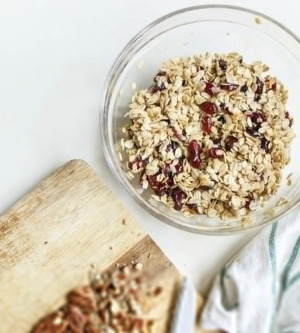
Especially when it’s plain or Greek-style, yogurt offers a triple benefit: calcium for bones, probiotics for digestion, and protein to support muscles.
Look for options with low added sugar, and consider adding fruit or nuts for a satisfying snack or breakfast.
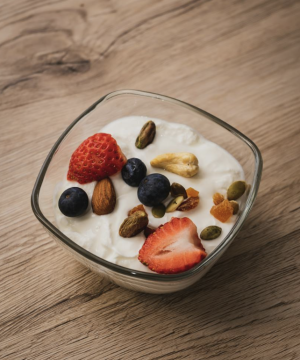
Broccoli, cauliflower, and Brussels sprouts belong to this powerful family.
They contain fiber, vitamins, and unique plant compounds that support heart health and may help fight certain types of cancer.
Roast them for a flavorful side or add to stir-fries and casseroles.

Tomatoes are rich in lycopene, an antioxidant associated with lower risk of heart disease and certain cancers.
Cooking them (as in tomato sauce or soup) enhances their lycopene content.
Try adding them to salads, pasta dishes, or sandwiches.
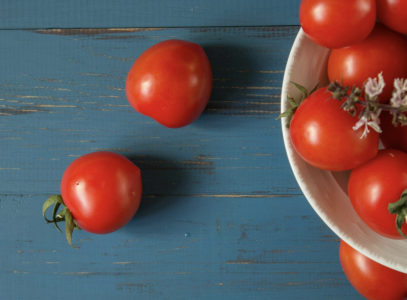
Creamy and satisfying, avocados offer healthy monounsaturated fats that can help reduce bad cholesterol and support brain function.
They’re also high in potassium, which supports blood pressure control.
Add slices to sandwiches, blend into smoothies, or mash onto whole grain toast.
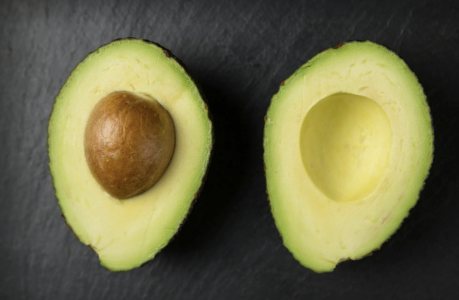
Sweet potatoes are rich in beta-carotene (which becomes vitamin A in the body), potassium, and fiber.
They help support eye health, immune function, and blood sugar regulation.
Try them baked, roasted, or mashed for a naturally sweet, nutritious side dish.
Yes, even dessert can be healthy—when it’s the right kind.
Dark chocolate (with at least 70% cocoa content) contains flavonoids, antioxidants that may help lower blood pressure and promote heart health.
A small square after dinner is a delicious way to indulge without guilt.

You don’t need to overhaul your entire diet to benefit from these foods.
Try starting with just one or two new additions each week.
Replace less nutritious choices with better ones—like oatmeal instead of sugary cereal, or roasted sweet potatoes instead of fries.
Many of these foods are also featured in the Mediterranean diet, which emphasizes plant-based meals, whole grains, healthy fats, and lean protein.
Eating well doesn’t have to be complicated, expensive, or restrictive.
With a few simple swaps and a little planning, you can enjoy food that not only tastes great but helps you stay active, alert, and thriving.
Read next: Experts reveal the protein-packed food that supports heart health after 60

Which superfoods are your favorites—and do you have a recipe you love? We’d love to hear what’s working for you!
If you've ever wondered whether there's a secret ingredient for feeling energized, focused, and resilient as you age, you're not alone.
Many older adults are rethinking their diets and looking for ways to support their health through better nutrition.
The good news? Science continues to point toward certain nutrient-dense foods—commonly known as “superfoods”—that may offer impressive benefits for the brain, heart, bones, and more.
And the even better news?
Most of these foods are easy to find, delicious, and simple to incorporate into your daily meals.

A balanced plate filled with whole foods can support healthy aging, energy, and vitality at any stage of life. Image Source: Pexels / Jane T D.
What are superfoods—and why do they matter?
Superfoods aren’t magic, but they are powerful.
They’re foods that are naturally rich in essential nutrients—vitamins, minerals, fiber, antioxidants, and healthy fats—that help protect your body from disease and support graceful aging.
Whether you're hoping to boost your memory, reduce inflammation, or improve heart health, the right food choices can make a big difference.
Here are 12 of the best superfoods for adults over 50—and easy ways to enjoy them every day.
1. Berries
Whether you prefer blueberries, strawberries, or raspberries, these small fruits pack a big nutritional punch.
They’re loaded with vitamin C and flavonoids that may help protect brain health and fight inflammation.
Studies have linked regular berry consumption to improved memory and slower cognitive aging. Try them fresh, frozen, or blended into a smoothie.

These antioxidant-rich berries may help support brain health and memory as you age. Image Source: Pexels / Suzy Hazelwood.
2. Leafy greens
Spinach, kale, and Swiss chard are top choices when it comes to greens.
These veggies are packed with vitamins A, C, K, and folate—nutrients that support vision, heart health, and strong bones.
They’re also a good source of calcium and fiber. Add them to soups, salads, or sauté them with a little olive oil and garlic.

Packed with vitamins and calcium, leafy greens promote strong bones and heart health. Image Source: Pexels / Emmanuel Nalli.
Also read: Hot peppers, healthy perks: How spicy food might benefit you
3. Fatty fish
Salmon, sardines, and mackerel are all rich in omega-3 fatty acids, which support brain function, reduce inflammation, and help protect against heart disease.
Experts recommend two servings per week. Try them grilled, baked, or mixed into a fish stew.

Fatty fish provide omega-3s that support brain function and reduce inflammation. Image Source: Pexels / Karyna Panchenko.
4. Nuts and seeds
Almonds, walnuts, flaxseeds, and chia seeds provide healthy fats, plant-based protein, and key minerals like magnesium.
Walnuts are especially good for brain health, and flaxseeds offer a plant-based source of omega-3s.
Enjoy a small handful as a snack, or sprinkle them onto yogurt, salads, or oatmeal.
5. Beans and lentils
Beans are affordable, high in protein and fiber, and excellent for heart health.
They also help regulate blood sugar and support digestive health.
Lentils, black beans, chickpeas, and kidney beans are all smart choices.
Toss them into soups or use them as a base for hearty salads.

Protein- and fiber-rich legumes like beans and lentils help regulate blood sugar and cholesterol. Image Source: Pexels / Vanessa Loring.
Also read: Which fast-casual lunches are really healthy? Here’s how popular menu items rank
6. Whole grains
Switching to whole grains like oats, quinoa, barley, and brown rice can help regulate digestion, lower cholesterol, and keep your energy steady.
These grains are rich in fiber and B vitamins, making them great for overall wellness.
Choose whole grain versions of bread, pasta, or breakfast cereals.

Whole grains fuel the body with fiber, B vitamins, and long-lasting energy. Image Source: Pexels / Polina Tankilevitch.
7. Yogurt
Especially when it’s plain or Greek-style, yogurt offers a triple benefit: calcium for bones, probiotics for digestion, and protein to support muscles.
Look for options with low added sugar, and consider adding fruit or nuts for a satisfying snack or breakfast.

Calcium and probiotics in yogurt support bone strength and gut health. Image Source: Pexels / Vlad Chețan.
8. Cruciferous vegetables
Broccoli, cauliflower, and Brussels sprouts belong to this powerful family.
They contain fiber, vitamins, and unique plant compounds that support heart health and may help fight certain types of cancer.
Roast them for a flavorful side or add to stir-fries and casseroles.

These veggies offer fiber, vitamins, and powerful plant compounds that protect the heart. Image Source: Pexels / cottonbro studio.
Also read: The surprising link between your personality and food cravings
9. Tomatoes
Tomatoes are rich in lycopene, an antioxidant associated with lower risk of heart disease and certain cancers.
Cooking them (as in tomato sauce or soup) enhances their lycopene content.
Try adding them to salads, pasta dishes, or sandwiches.

Tomatoes are a top source of lycopene, an antioxidant linked to heart and cancer protection. Image Source: Pexels / Наталья Курт.
10. Avocados
Creamy and satisfying, avocados offer healthy monounsaturated fats that can help reduce bad cholesterol and support brain function.
They’re also high in potassium, which supports blood pressure control.
Add slices to sandwiches, blend into smoothies, or mash onto whole grain toast.

Creamy avocados provide healthy fats that support brain and heart function. Image Source: Pexels / Foodie Factor.
11. Sweet potatoes
Sweet potatoes are rich in beta-carotene (which becomes vitamin A in the body), potassium, and fiber.
They help support eye health, immune function, and blood sugar regulation.
Try them baked, roasted, or mashed for a naturally sweet, nutritious side dish.
12. Dark chocolate
Yes, even dessert can be healthy—when it’s the right kind.
Dark chocolate (with at least 70% cocoa content) contains flavonoids, antioxidants that may help lower blood pressure and promote heart health.
A small square after dinner is a delicious way to indulge without guilt.

Dark chocolate delivers flavonoids that may help lower blood pressure—just enjoy in moderation. Image Source: Pexels / Lisa from Pexels.
Also read: This "healthy" food could be sabotaging your weight loss: a surgeon’s surprising warning
Tips for making superfoods part of your routine
You don’t need to overhaul your entire diet to benefit from these foods.
Try starting with just one or two new additions each week.
Replace less nutritious choices with better ones—like oatmeal instead of sugary cereal, or roasted sweet potatoes instead of fries.
Many of these foods are also featured in the Mediterranean diet, which emphasizes plant-based meals, whole grains, healthy fats, and lean protein.
Also read: Eat smart: A nutritionist’s top 3 carbs for stress relief and healthy weight loss
Simple reminders for healthy aging
- Drink more water: Hydration supports every system in your body.
- Watch your portions: Metabolism slows with age, so eat mindfully.
- Keep moving: Regular activity helps maximize the benefits of good nutrition.
- Enjoy your meals: Mealtimes should be joyful, not stressful.
Eating well doesn’t have to be complicated, expensive, or restrictive.
With a few simple swaps and a little planning, you can enjoy food that not only tastes great but helps you stay active, alert, and thriving.
Read next: Experts reveal the protein-packed food that supports heart health after 60
Key Takeaways
- Superfoods are nutrient-dense foods that can support better health, energy, and longevity after age 50.
- Top choices include berries, leafy greens, fatty fish, whole grains, nuts, yogurt, tomatoes, and more.
- The Mediterranean diet is a proven eating pattern that incorporates many of these foods and supports heart and brain health.
- Starting with small changes—like swapping in one or two superfoods—can make a big impact over time.
Which superfoods are your favorites—and do you have a recipe you love? We’d love to hear what’s working for you!

